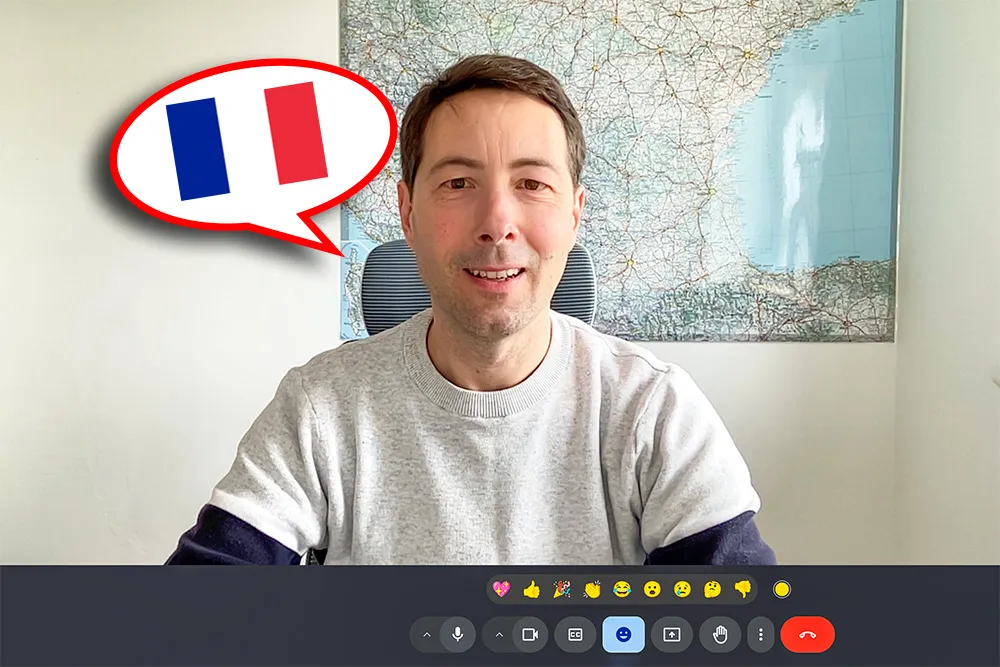When to use célèbre vs fameux? Well, last week, during an online French lesson, my American student Susan was telling me about a fameux musée she had visited in San Francisco.
I gently stopped her. “In French,” I explained, “we wouldn’t say fameux here.
We’d say célèbre.” She smiled, a little surprised — because of course, in English, famous is the obvious choice.
And that’s exactly where the trap lies. The French fameux may look like famous, but it doesn’t usually mean the same thing.
So merci, Susan, for inspiring this little lesson — I suspect this will save a lot of French learners from tumbling into the fameux trap!
Célèbre vs Fameux: The safe word!
Think of célèbre as your linguistic Swiss Army knife for “famous”.
It works everywhere, in all registers, from casual café chat to academic essays.
It’s the word French people actually use when they mean well-known, celebrated, or renowned.
✅ La Tour Eiffel est un monument célèbre de Paris.
→ The Eiffel Tower is a famous monument of Paris.✅ Édith Piaf est une chanteuse célèbre.
→ Édith Piaf is a famous singer.✅ Un vin célèbre de Bordeaux.
→ A famous wine from Bordeaux.
Notice how natural it sounds. Nobody will bat an eyelid. If you want to impress your French hosts without any risk, always go for célèbre.
The tricky cousin: fameux
Now, here comes the troublemaker. Fameux looks like “famous”… but it has a different personality in French.
It usually means one of three things:
Notorious, infamous, troublesome (often with irony or complaint):
Ce fameux retard du train.
→ That blasted train delay.In context: you’ve been waiting two hours at Gare de Lyon, your croissant is stale, and you mutter about le fameux retard. It’s not positive, it’s exasperation.
Legendary, outstanding, amazing (often about food or drink, because this is France after all):
Ce gâteau est fameux !
→ This cake is outstanding / amazing!Here it means “remarkable”, “top-notch”. Your French host beams with pride, and you get a second slice.
That well-known thing we all keep talking about (sometimes with a sigh or wink):
Cette fameuse réunion du lundi matin…
→ That well-known Monday morning meeting…It’s the thing everyone dreads, the unavoidable event. Fameux here carries an ironic or weary tone.

So… if you proudly tell a French friend:
❌ J’ai visité un musée fameux à San Francisco.
→ I visited a notorious / infamous museum in San Francisco.
They’ll imagine a museum famous for thefts, leaks, or dodgy toilets. Not quite what you wanted.
Rule of thumb: when you simply mean famous, never touch fameux. It’s a slippery word with hidden meanings.
Célèbre vs Fameux: A few funny examples
- ❌ La Joconde est un tableau fameux.
→ The Mona Lisa is a notorious painting. (Sounds like she’s wanted by Interpol.) - ✅ La Joconde est un tableau célèbre.
→ The Mona Lisa is a famous painting.
- ❌ C’est un restaurant fameux de Marseille.
→ It’s a notorious restaurant in Marseille. (Infamous for what? Dodgy bouillabaisse? Terrible service?) - ✅ C’est un restaurant célèbre de Marseille.
→ It’s a famous restaurant in Marseille.
- ✅ Cette tarte Tatin est fameuse !
→ This tarte Tatin is outstanding / legendary!
(Here it’s correct. The only risk is asking for a third helping.)

The moral of the story
When in doubt, stick to célèbre. It’s the linguistic equivalent of ordering a coffee in France: safe, straightforward, always works.
Keep fameux in your back pocket for when you want to sound a bit ironic, a bit French, or when you’re raving about food.
Because let’s be honest: French trains may not always be célèbres, but their delays? Those are definitely fameux.



